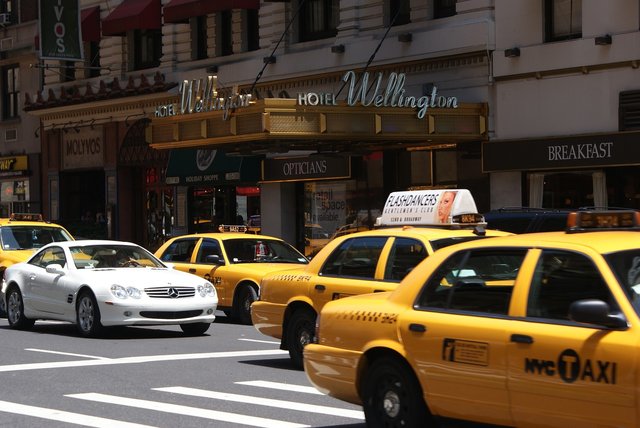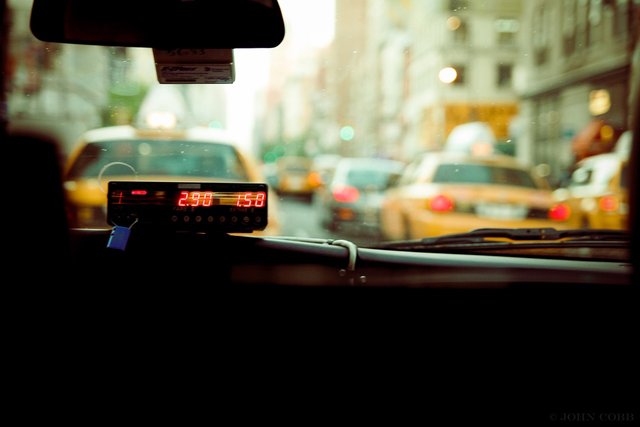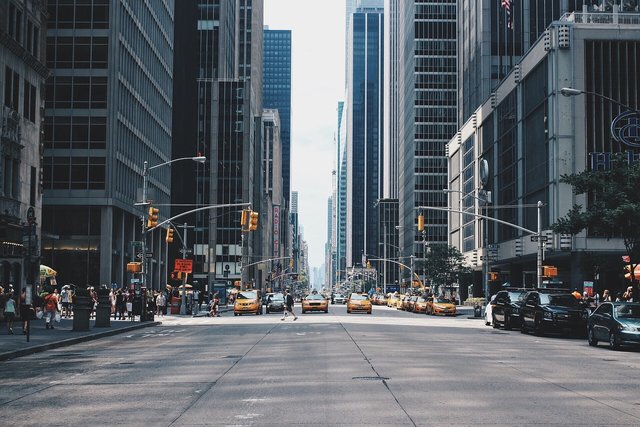Don't Blame The Apps For What The State Did

The growing success of ride sharing apps like Lyft and Uber has meant a decrease in business for many taxi drivers in recent years. As a result, we've already seen a variety of protests take place over the years, with taxi drivers becoming enraged at the competition and even resorting to physical violence at times, attacking ride-sharing drivers and their property; some have had their cars smashed and torched..
Now, a growing number of taxi drivers have committed suicide and their loved ones have reportedly suggested that it's likely because of the incredible mountain of debt that they face as a result of obtaining their wildly overpriced taxi medallions.
This means that people will likely choose the option that will offer the best price and the most convenience etc. For too long, passengers have had to settle for lower standards because of the limited competition that's been available in this market; they have had to repeatedly suffer because of the greed of those who hold and seek to maintain a monopoly in this industry.

One previous study on taxi and ride-sharing services found that the new competition is much faster than your traditional taxi.
For taxis, it was less than 40 percent of passengers who had been picked up within 10 minutes. Not only did the competition perform faster but they've also been the cheaper option for many.
Back in 2014, it's reported that a taxi medallion for New York was worth over $1 million and many taxi drivers took on a great deal of debt so that they could secure their medallion. After all, it was a sure thing they thought.
Other drivers are leasing their cab from a medallion owner and now they cannot afford to make payments that they owe. For the cost of a medallion today, that price has dropped drastically from over $1 million a few years ago to around $100k now.

Taxi driver suicides have been on the rise lately and now the issue has prompted the city of New York to respond and they've indicated that they are planning to waive millions of dollars in fees to try and alleviate some of the pressure that the taxi drivers are facing; having to pay for various regulatory fees.
As another potential solution to try and alleviate some of the pain, this past summer, Uber CEO D. Khosrowshahi recommended that the company seek to place an additional surcharge on every fare, so that they could use that money to establish a hardship fund that could potentially go toward helping some of those struggling taxi drivers.
Taxi drivers are struggling with thousands of dollars in debt because they had to pay for permission to serve people in their community, to drive for them they had to first pay for access to a medallion.
As always, these sorts of limitations on our freedom are often given under the guise of “promoting safety” for the consumers, but reducing competition and as a consequence quality of service, doesn't make for a safer environment. Attempting to centrally control and limit the supply of drivers that can offer rides has resulted in a mess that hasn't promoted the best interest of the people. With competition comes freedom and people should have the freedom to pursue an alternative that can adequately meet their needs.
Pics:
Pixabay

Exactly! Case in point of having to obtain a permit in order to build a small deck on the property that one "owns".
But you might hurt yourself! Or the environment! How else will we determine whether you're a capable builder unless you fill out paperwork and give us money?
I agree with you about the centralization creating this horrific circumstance that has led to so much pain and misery for taxi drivers (and passengers); however, I don't know about the idea of competition definitely maximizing freedom.
Take ISPs, for example. Yeah, technically, they're competitors. However, in practice, they've basically carved up territories mafia-style and refuse to compete with one another. So they maintain monopolies within their regions.
Also, as smaller companies (like Google or Amazon back in the day) out-compete others, they tend to absorb new start-ups and thereby stifle competition.
I don't have a good solution to these problems, but they bother me quite a lot.
competition cannot exist without freedom, when you don't have competition you have things that are centrally controlled, which is why I equate the two. If they maintain a monopoly it is only because the state is the violence that enables them to do it. The government has a tremendous deal of control and say in the placement and construction of cell towers etc. And those bigger companies that purchase the smaller ones also unfortunately are making the purchases from willing sellers, whether I like it or not, it's voluntary. The illusion of competition bothers me as well, but so long as there is freedom available that means there will always be some form of competition and they won't have a complete monopoly established.
I think you've landed on something that drew me to cryptocurrencies in the first place: the ability to cut right through the (inter)national bullshit about how/where capital can flow. The problems associated with State-controlled currency, basically.
I'm positive that this crypto disruption will result in new abuses (or already has), but I guess I'm ready for new problems. These old ones suck.
Too much regulation and interference nearly always causes hardship.
As small time "mom & pop capitalist" I know the hassle of it sometimes taking MORE time to record the required paperwork to the officialdom know what I'm doing than the time I actually spend working on what I'm doing.
Some of this is a two-way street, though. The ride-share apps may be good for consumers, but ultimately the prices will drop to the point just around where you barely scrape a living... that's what intelligent markets do... find the point at which the most "generous" buyer meets the most "desperate" seller.
Well duh it's faster. Taxi drives (In Vegas) break laws all the time. The number of minutes it takes to get pulled over, checked, ticketed is a waste on the costumer's demands.
to this case you have to have interest and importance although I do not live abroad and I do not know how is the taxi service, but here in my country we look for safety and the lowest cost and more if they present a good service